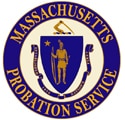- Executive Office of the Trial Court
- District Court
- Boston Municipal Court
- Housing Court
- Juvenile Court
- Land Court
- Probate and Family Court
- Massachusetts Probation Service
Media Contact
Jennifer Donahue and Erika Gully-Santiago
BOSTON, MA — The Massachusetts Trial Court today announced a range of measures to reduce the number of people coming into state courts. Each Trial Court department has issued a temporary Standing Order which will take effect on Wednesday, March 18. These Standing Orders will triage court business to substantially reduce the need for people to come into courthouses.
“In light of public health concerns arising from the coronavirus (COVID-19) pandemic and the State of Emergency declared by the Governor, courts are taking extraordinary measures to ensure that all who use and work in our courts are safe,” said Trial Court Chief Justice Paula Carey. “Historically, approximately 40,000 people come into our 99 courthouses every day. Our priority is to significantly reduce the number of people who come into our courts, especially in large group settings, by reducing the number of matters the court will hear and by increasing the number of matters that the court will resolve through video and telephone conferences. The Trial Court community remains committed to ensuring access to justice for people who need assistance, by keeping courts open and available to court users to the extent possible, while ensuring that steps are taken to protect other court users and court staff.”
In accordance with an order issued on Friday by the Supreme Judicial Court, each of the seven Trial Court departments has issued a Standing Order that details the department’s case management plan governing the business of that court, available on the court's website.
At this time, all courts remain open for regular business, and many previously scheduled court related events will be held as scheduled, albeit by alternative means such as videoconferencing and telephone, consistent with constitutional rights. Although each Trial Court department provides guidance specific to the cases adjudicated in that department, all of the Standing Orders reflect common themes designed to reduce the number of people entering courthouses on a daily basis and to permit social distancing when they do, such as:
- The expansion of videoconferencing to conduct court events in cooperation with Sheriff’s Departments and other facilities;
- The promotion of electronic filing where available;
- The use of staggered schedules to reduce the number of people appearing in court at a given time;
- Encouraging litigants to pay court fees online, and if court users are unable to do so, the deferment of fees until May 4, 2020, with no impact on probationary status.
Court users should review the Standing Order applicable to the specific court department where their case is pending to understand the modifications made to normal operations. Questions about specific cases should be directed to the relevant Clerk’s, Register’s or Recorder’s Office.
Emergency matters, such as requests for restraining orders, harassment prevention orders, emergency petitions, and mental health proceedings, will proceed as normal. Specialty Court sessions will continue to be held at this time. All non-emergency summary process (eviction) hearings shall be continued to a date no earlier than April 21, 2020. When hearings are held, they will be managed in a way to ensure social distancing. Certain protocols or Probation practices/standards may be modified during this emergency period.
In addition to the measures set forth above in an effort to mitigate exposure of court users and staff, the Trial Court earlier this week announced the postponement of in-person trainings and other large events, cancellation of out-of-state conference travel, and staffing protocols to be followed in the case of exposure to COVID-19. Trial Court Facilities Management has expanded the use of disinfectant cleaning, especially in high-touch areas, such as jury pool rooms, elevator buttons, Clerks’ offices, probation departments, and holding cells. Posters in English and Spanish promoting healthy hygiene practices have been posted in the 99 courthouses across the state.
On Friday, March 13, the Supreme Judicial Court issued two orders regarding the courts and the COVID-19 (Coronavirus) pandemic. The SJC ordered that, effective immediately, all empanelments in jury trials in both criminal and civil cases are postponed until no earlier than April 21, 2020. The order does not affect any case in which a jury has already been empaneled or where a jury has been selected for empanelment; such cases will proceed through verdict. In addition, no new grand juries will be empaneled before April 21, 2020, and grand juries whose terms expire on or before April 21, 2020 will be extended until that date. In exceptional circumstances, a criminal defendant may seek an exception to the order postponing jury trials.
In a separate order also issued on Friday, the SJC ordered that, effective immediately, persons who have symptoms of, or any exposure to, COVID-19 may not enter a courthouse or other state court facility, including probation offices, until the SJC determines that it is safe to remove the restrictions. Persons attempting to enter a courthouse or other state court facility in violation of this order will be denied entry by security. Persons meeting any of the criteria identified in the SJC orders should remain at home and contact their attorney (if they have one) or the court to reschedule any events. Jurors sitting on an ongoing trial or grand jury who meet any of the criteria should call the telephone number they were provided with when they were seated on the jury. Persons meeting any of the criteria who have no attorney and who seek emergency relief should call the Clerk's Office for the relevant court where they would seek relief. Contact numbers for individual courts and offices can be found online on the Courthouse Locator page.
###
